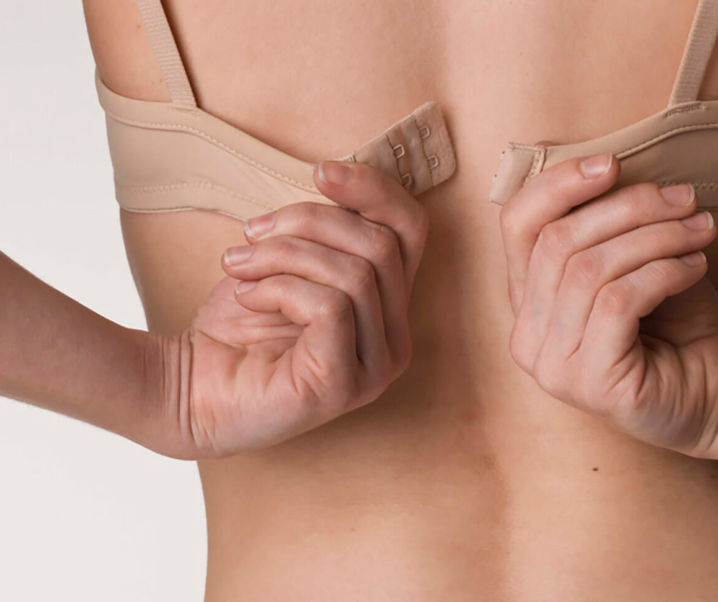Everyone’s body is different but most people will have stubborn fats that stay despite rigorous dieting and exercising. That’s when liposuction comes in – to get rid of those stubborn fats. However, the success of your liposuction surgery not only lies in the hands of your surgeon but also the patients. Yes, we are talking about liposuction aftercare – the dos and don’ts and post-op instructions for recovery after liposuction surgery.
What to expect after liposuction surgery
1. Bruising & swelling
Expect minor bruising, swelling and soreness at the incision sites to last 1~2 weeks. Do note however that the more extensive the liposuction surgery, the more bruising you can expect. You might also experience hardness and numbing sensation at the incision areas but it should go away very quickly. This is because the surgery often causes a temporary disruption of the small nerve fibers going through the fat layer to reach the skin surface.
2. Medication
You will be prescribed with painkillers and antibiotics after your surgery. Make sure to take your medications as prescribed by your plastic surgeon.
3. Irregularities under the skin
You might notice slight irregularities under your skin right after the surgery. These small bumps under your skin are present because your body is sending inflammatory cells to the area to get rid of residual damaged fat cells. It should go away in a few weeks time.
Sometimes, plastic surgery clinics tend to offer free high frequency toning treatment or fraxel treatments (about 3~4 times) as part of the body contouring package. These treatments help make your skin and tissues smoother, reduce bumps, boost healing and reduce scarring and pigmentation.
4. Compression garment
You will be required to wear a compression garment on the areas where liposuction is done for at least 2~3 months after your liposuction surgery. This will help reduce swelling, provide support while maintaining the shape and contours of your body shape.
Liposuction aftercare & post-op instructions
- Do try to rest in an upright position for comfort and to decrease swelling. Do rest in a recliner or in bed with 2-3 pillows propped behind your back.
- Wear your compression garment for at least 2 months. Try to wear it 24/7 for as long as you can as it helps reduce swelling and bruising, and maintains your new contours and body shape.
- Avoid or minimize activities involving the affected sites for at least 2~3 weeks.
- Do not smoke or be around a smoker for at least 2 months. Smoking slows down healing and increases the risk of infection of your wounds.
- Do not use any ice or heating pads on the areas treated by liposuction as you may freeze or burn your skin.
- Do not wipe or clean the incisions until stitches are removed. Water can affect sutures, and possibly reopen the incision.
- No full showers until your stitches are removed. Getting the surgical area wet can lead to irritation, inflammation, and a higher risk of infection.
- Avoid body massages, saunas or soaking in your bathtub for at least 1~2 months.
Exercise advice
- Avoid strenuous exercises such as aerobics, jogging, swimming, weight lifting, stretching and intercourse etc. for at least 3~6 weeks, depending on how extensive your liposuction was.
- Take lots of light walks in the park as it helps reduce swelling, lower the chance of developing blood clots, and avoid constipation.
Food & drink advice
- Abstain from alcohol for at least 3 weeks as it thins your blood which causes prolonged bleeding or infections.
- Avoid salty foods for at least 2 weeks as it contribute to fluid retention and swelling.
- Avoid spicy, greasy, fried or gaseous foods.
- Reduce caffeine and carbonated drinks intake for the first few days.
- Eat a well-balanced diet and drink lots of fluids (water and fresh juices).
- Eat plenty of fruits and fresh vegetables to avoid constipation.


Medication advice
- Do not take aspirin or any products containing aspirin unless instructed by your surgeon.
- Avoid using any over-the-counter ointments unless recommended by your surgeon.
- If you have regular medication (eg. blood pressure or hypertension medication etc.), consult your surgeon on when you can resume taking them.
- Take your prescriptions regularly as instructed by your surgeon.
- Do not take your medications on an empty stomach.
Extra liposuction aftercare tips for speedy recovery
1. Sunscreen
Avoid direct sun exposure and UV rays to your scars as much as possible. If sun exposure is unavoidable, use a strong sunblock (SPF 30 or greater) to protect your scars. Otherwise, there is risk of hyperpigmentation if you are not careful.
2. Eat a healthy and well-balanced diet
This means lots of fruits and vegetables, but not forgetting your meats. And stay away from sweets, greasy and processed food, obviously. Fruits such as pineapples, berries and apples are known to help reduce swelling. Vegetables, especially dark leafy greens like spinach and broccoli, and meats, preferably white meats, help expedite healing and fight infections.
Keep a healthy diet to help maintain the results of your liposuction surgery and your new figure.
3. Sleep, sleep & sleep
Healing requires a lot of energy, so you’ll probably feel more tired than usual. Take lots of naps and sleep early at night. In fact, having a good night’s sleep is one of the best ways to accelerate your recovery process. The recovery period is the best time for you to do nothing and watch netflix!
4. Gentle massages
Sometimes, the treated areas may feel firm and lumpy in places, especially if you have had some fat necrosis within the tissue. You may start gently massaging over these areas 2 weeks after surgery.
5. Always wear your compression garment
We must assert how important wearing your compression garment is. The compression garment will help reduce swelling and bruising, provide support and help promote skin conformity. Wear it 24/7 for at least 2 months or for as long as you can and don’t take it off unless you are showering.
6. Do not miss any follow-up appointments
Follow-up appointments are necessary for your doctor to check on how you have been healing. It is also the best time for you to ask questions and get further clarifications on what you have experienced during your recovery period.
7. Wardrobe overhaul
You must be so excited to go clothes shopping and do an overhaul for your closet. But do delay clothes shopping for at least 3 months because your body shape and size will continue to improve until it has settled down.
Seek medical advice asap if you experience:
- Persistent fever of 100.4° F (38° C) or higher
- Increased pain, swelling, and redness at your surgical areas not being relieved by medication
- Bleeding from the incisions that is difficult to control with light pressure
- Constant yellowish or greenish pus (especially with foul odor) from the incisions
- Loosening or reopening of incisions
- Side effects to medications such as, rash, nausea, headache, vomiting or constipation
- Sudden shortness of breath or have trouble breathing
- Any unexplained or unexpected symptoms










What do you think?